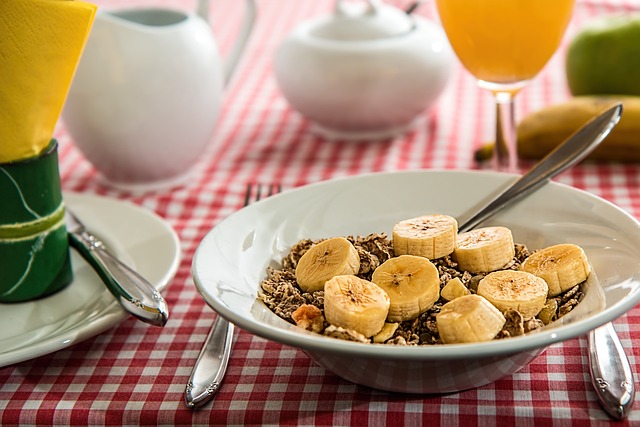From Yogurt to Kombucha: Exploring the World of Probiotic Foods
Probiotics have been getting a lot of attention in recent years for their potential health benefits. These live bacteria and yeasts can support digestive health, boost immunity, and even improve mental health. While probiotic supplements are widely available, there are also many delicious foods that naturally contain probiotics. Let’s take a look at some of the most popular probiotic foods and what makes them so special.
Yogurt
Yogurt is perhaps the most well-known probiotic food, and for good reason. This creamy treat is made by fermenting milk with specific strains of bacteria, such as Lactobacillus bulgaricus and Streptococcus thermophilus. Some brands of yogurt also contain additional probiotic strains, such as Bifidobacterium lactis and Lactobacillus acidophilus.
Studies have shown that eating yogurt can help regulate gut health and ease symptoms of digestive disorders like Irritable Bowel Syndrome (IBS). It may also boost immunity and contribute to overall weight management. Just be sure to choose plain yogurt over varieties that are loaded with added sugars and artificial flavors.
Kefir
Kefir is a tangy, drinkable dairy product that’s similar to yogurt in its probiotic content. It’s made by adding kefir grains (a combination of yeasts and bacteria) to milk and letting it ferment for around 24 hours. The result is a slightly effervescent, probiotic-rich drink that’s perfect for smoothies or enjoyed on its own.
Kefir has been shown to support digestive health and may also have anti-inflammatory, antifungal, and antioxidant properties. It’s also a great source of calcium, protein, and B vitamins.
Kombucha
Kombucha has skyrocketed in popularity in recent years and for good reason. This fermented tea is made by adding a SCOBY (symbiotic culture of bacteria and yeast) to sweetened tea and letting it ferment for a week or two. The result is a tangy, slightly bubbly beverage that’s brimming with probiotics.
Kombucha contains a variety of beneficial bacteria and yeasts, including Acetobacter, Brettanomyces, and Lactobacillus. It also contains antioxidants and has been shown to have anti-inflammatory properties. Some studies have even suggested that kombucha may have anticancer benefits, although more research is needed in this area.
Sauerkraut
Sauerkraut is a classic German dish made from fermented cabbage. It’s tangy, crunchy, and full of beneficial probiotics. Sauerkraut is made by slicing cabbage thinly, salting it, and letting it ferment for several days. The end result is a probiotic-rich side dish that’s perfect for hot dogs, sandwiches, and more.
Like other probiotic foods, sauerkraut is good for digestive health. It’s also loaded with vitamins C and K, as well as iron and fiber.
Miso
Miso is a staple in Japanese cuisine that’s made by fermenting soybeans with koji (a type of fungus) and salt. The resulting paste is salty, savory, and packed with beneficial bacteria.
Miso contains a variety of probiotic strains, including Lactobacillus and Bifidobacterium. It also contains antioxidants and has been shown to have anti-inflammatory properties. Some studies have even suggested that miso may have cancer-fighting benefits.
Conclusion
As you can see, there are many delicious foods that can provide your body with probiotics. From yogurt to kombucha, there’s something for everyone. Try experimenting with different probiotic foods to see what works for you and your taste buds.
And remember, while probiotic supplements can be helpful, they should never replace a healthy, balanced diet. Incorporating probiotic-rich foods into your diet is just one more way to support your overall health and well-being.







